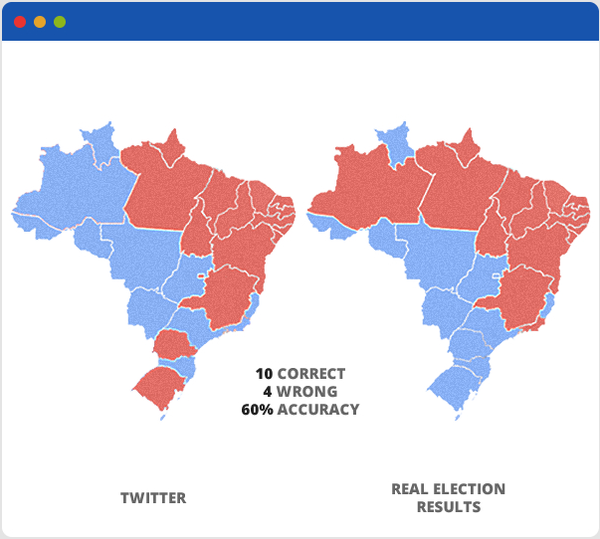Social Media Sentiment Analysis using Twitter Data
This page is in progress Please check back later for additional changes. |
Sentiment analysis, also known as opinion mining, opinion extraction, sentiment mining, or subjectivity analysis, is the process of analyzing a piece of online writing (social media mentions, blog posts, news sites, or any other piece) that expresses a positive, negative, or neutral attitude. https://brand24.com/blog/twitter-sentiment-analysis/
Some applications
- Example 1 - Business: companies use opinion mining tools to find out what consumers think of their product, service, brand, marketing campaigns, or competitors.
- Example 2 - Public actions: opinion analysis is used to analyze online reactions to social and cultural phenomena, for example, the premiere episode of the Game of Thrones, or Oscars.
- Example 3 - Politics: In politics, sentiment analysis is used to keep track of society’s opinions on the government, politicians, statements, policy changes, or event to predict results of the election.
- Here the link to a nice article I found «This article describes the techniques that effectively analyzed Twitter Trend Topics to predict, as a sample test case, regional voting patterns in the 2014 Brazilian presidential election»: https://www.toptal.com/data-science/social-network-data-mining-for-predictive-analysis
- In essence, this guy analyses Twitter data for the days prior to the election and got this map:
- Example 4 - Health: I found, for example, this topic that I think is really interesting: Using Twitter Data and Sentiment Analysis to Study Diseases Dynamics. In this work, we extract information about diseases from Twitter with spatiotemporal constraints, i.e. considering a specific geographic area during a given period. We show our first results for a monitoring tool that allows studying the dynamic of diseases https://www.researchgate.net/publication
Collecting data from Twitter
https://www.toptal.com/python/twitter-data-mining-using-python
https://marcobonzanini.com/2015/03/02/mining-twitter-data-with-python-part-1/
Why Twitter data?
Twitter is a gold mine of data. Unlike other social platforms, almost every user’s tweets are completely public and pullable. This is a huge plus if you’re trying to get a large amount of data to run analytics on. Twitter data is also pretty specific. Twitter’s API allows you to do complex queries like pulling every tweet about a certain topic within the last twenty minutes or pull a certain user’s non-retweeted tweets.
A simple application of this could be analyzing how your company is received in the general public. You could collect the last 2,000 tweets that mention your company (or any term you like), and run a sentiment analysis algorithm over it.
We can also target users that specifically live in a certain location, which is known as spatial data. Another application of this could be to map the areas on the globe where your company has been mentioned the most.
As you can see, Twitter data can be a large door into the insights of the general public, and how they receive a topic. That, combined with the openness and the generous rate-limiting of Twitter’s API, can produce powerful results.
Twitter Developer Account:
In order to use Twitter’s API, we have to create a developer account on the Twitter apps site.
Log in or make a Twitter account at https://apps.twitter.com/
As of July 2018, you must apply for a Twitter developer account and be approved before you may create new apps. Once approved, you will be able to create new apps from developer.twitter.com.
Home Twitter Developer Account: https://developer.twitter.com/
Tutorials:https://developer.twitter.com/en/docs/tutorials
Docs: https://developer.twitter.com/en/docs
How to Register a Twitter App: https://iag.me/socialmedia/how-to-create-a-twitter-app-in-8-easy-steps/
